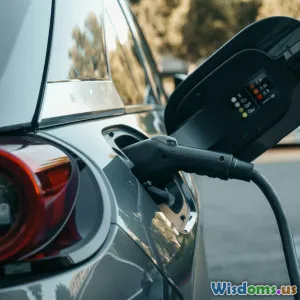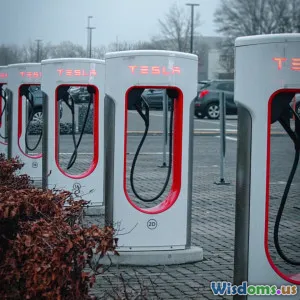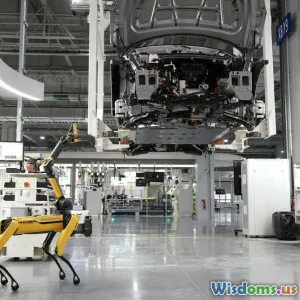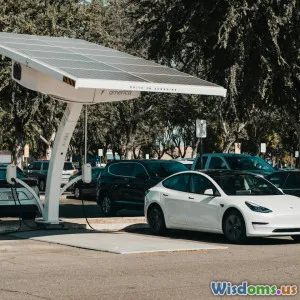
ऑटोमोटिव उद्योग में भविष्य की चुनौतियाँ
(Future Challenges in Automobile Industry)
5 मिनट पढ़ें विकसित हो रही तकनीकों और उपभोक्ता मांगों के साथ अनुकूलन करते हुए ऑटोमोटिव उद्योग का सामना करने वाली मुख्य चुनौतियों का पता लगाएँ। (0 समीक्षाएँ)
Future Challenges in Automobile Industry
The automobile industry is at a pivotal point in its history. With rapid advancements in technology, shifting consumer preferences, and increasing regulatory pressure, manufacturers must navigate a complex landscape to remain competitive. In this article, we will explore the major challenges the automobile industry faces today and in the coming years, along with potential strategies to address them.
1. Sustainability and Environmental Regulations
One of the most pressing challenges facing the automobile industry is the need to transition towards more sustainable practices. As climate change becomes an increasingly urgent issue, governments worldwide are implementing stricter emissions regulations. For example, the European Union has set ambitious targets to reduce carbon emissions from vehicles, pushing manufacturers to invest in electric vehicles (EVs) and alternative fuel technologies.
The Shift to Electric Vehicles
The transition to EVs is not merely a trend but a necessary shift for the industry. However, challenges abound. The development of adequate charging infrastructure, battery technology, and the sourcing of raw materials for batteries (such as lithium and cobalt) are critical areas that require attention. Companies like Tesla and traditional automakers alike are racing to innovate and lead in this field, yet the transition is fraught with obstacles, including the high costs associated with research and development.
2. Technological Advancements and Automation
As technology rapidly evolves, so does the expectation of consumers. Features such as autonomous driving, connectivity, and advanced safety systems are becoming standard expectations among buyers. This technological leap presents several challenges:
- Integration of Advanced Technologies: Automakers must ensure that these technologies are seamlessly integrated into their vehicles. This requires significant investment in both hardware and software, as well as partnerships with tech companies.
- Cybersecurity Risks: With increased connectivity comes greater vulnerability to cyberattacks. Automakers must prioritize cybersecurity measures to protect consumer data and vehicle integrity.
- Regulatory Compliance: As new technologies emerge, regulatory bodies must keep pace, which can lead to uncertainty for manufacturers trying to comply with evolving standards.
3. Changing Consumer Preferences
Today's consumers are more informed and have different expectations than previous generations. They are looking for vehicles that not only offer performance but also align with their values, such as sustainability and social responsibility.
The Rise of Shared Mobility
The concept of shared mobility is gaining traction, particularly among younger consumers. Services such as ride-sharing and car-sharing are altering the traditional ownership model, prompting manufacturers to rethink their strategies. Automakers are beginning to explore partnerships with tech companies to develop mobility solutions that cater to this new consumer behavior.
4. Global Supply Chain Disruptions
The COVID-19 pandemic has highlighted vulnerabilities in global supply chains, affecting the automobile industry severely. Manufacturers have faced shortages of critical components, such as semiconductors, which are essential for modern vehicles. As the industry moves forward, it is imperative to build more resilient supply chains capable of withstanding future disruptions.
Diversification and Local Sourcing
To mitigate risks, companies may need to diversify their supply sources or even bring production closer to home. This shift could also align with sustainability goals, as local sourcing often reduces the carbon footprint associated with transportation.
Conclusion
The future of the automobile industry is undoubtedly challenging, but it also presents vast opportunities for innovation and growth. By embracing sustainability, investing in technology, understanding changing consumer preferences, and building resilient supply chains, manufacturers can not only survive but thrive in this new landscape. As we move forward, the key will be adaptability and foresight, enabling the industry to navigate the complexities of a rapidly evolving world.
पोस्ट को रेट करें
उपयोगकर्ता समीक्षाएँ
वाहन प्रौद्योगिकी में अन्य पोस्ट
लोकप्रिय पोस्ट


















